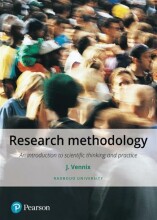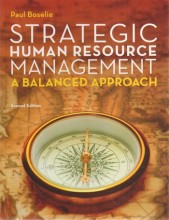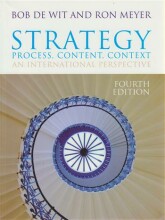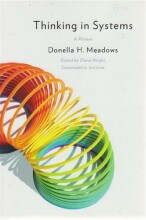Summary: Research Methodology An Introduction To Scientific Thinking And Practice | 9789043037884 | Jacobus Adrianus Maria Vennix
- This + 400k other summaries
- A unique study and practice tool
- Never study anything twice again
- Get the grades you hope for
- 100% sure, 100% understanding
Read the summary and the most important questions on Research methodology an introduction to scientific thinking and practice | 9789043037884 | Jacobus Adrianus Maria Vennix
-
1 The origins of science
This is a preview. There are 67 more flashcards available for chapter 1
Show more cards here -
What are the three common objects of business administration science?
- All aspects within an organization
- Relation within and between organizations
- Relation between organizations and the environment. -
What are the two sides of research?
Content side; what is the subject/phenomenon
Methodological side; the way the research is carried out -
What are the two ways how you can look at learning?
1. Instrumental; what you know today you can use tomorrow
2. Conceptual; you gain new insight that you don't immediately see but it helps you to reason. -
Disadvantage of instrumental learning
you can only use the learned knowledge for that one goal. -
1.1 Learning and knowing in everyday life and in science
This is a preview. There are 13 more flashcards available for chapter 1.1
Show more cards here -
What were the two headings in science from the 19th century?
Natural science and natural history -
What is the definition of management science?
Discipline of using scientific research based principles, strategies and other analytical methods to improve an organization's ability to enact rational, meaningful business management decisions. -
What is the difference between epistemology, methodology and ontology?
Epistemology --> science of knowing (how we know the world). Translating observation into knowledge.
Methodology --> how we can have insightOntology --> How we see the world -
What do methods and methodology offer?
Theinstruments to do good research -
On which 3 things do we need an agreement to reach agreement reality?
1. The way we work
2. How we observe
3. How we translate our observation into knowledge -
What is an empirical relationship?
A relationship or correlation based on observations
- Higher grades + faster learning
- Never study anything twice
- 100% sure, 100% understanding
Topics related to Summary: Research Methodology An Introduction To Scientific Thinking And Practice
-
The origins of science
-
The scientific method - Deduction, induction and abduction
-
The scientific method - Core concepts in science
-
A dominant paradigm - Logical positivism
-
A dominant paradigm - Critical rationalism
-
A dominant paradigm - Statements and their concepts
-
Quantitive Research: background
-
Quantitive Research: background - Logic of inquiry in the empirical-analytical tradition
-
Quantitive Research: background - Research designs in the empirical-analytical tradition - The experiment
-
Quantitive Research: background - Research designs in the empirical-analytical tradition - The survey
-
Research objective, research question and conceptual model
-
Operationalization - Defining concepts
-
Operationalization - Validity
-
Data collection - Sources of data and methods of collection
-
Data collection - Questionaire construction
-
Data collection - Content analysis and observation
-
Data preparation and scale construction
-
Analysis of quantitative data - Univariate analysis and levels of measurement
-
Analysis of quantitative data - Bi- and trivariate analysis with data of the same measurement level
-
Qualitative research: methodological background
-
Qualitative research Data collection and analysis - Data collection in qualitative research
-
Qualitative research Data collection and analysis - The analysis of qualitative data
-
Dynamic theories and models
-
Practice oriented research and the role of problem structuring - Contract research and policy research
-
Practice oriented research and the role of problem structuring - The problematic concept of the problem
-
Logic of inquiry and research design - Desiging an empirical study: substantiated choices
-
Logic of inquiry and research design - The steps in the design process

































